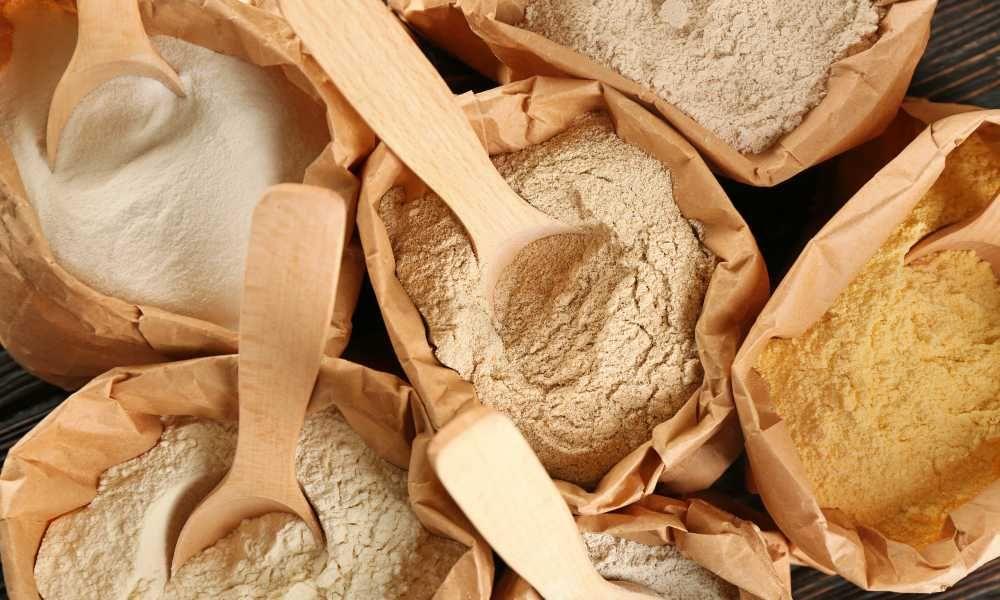Choosing the best and healthiest flours for everyday use depends on various factors including dietary preferences, nutritional needs, and culinary applications. Here are six options that are often considered among the healthiest:
Whole Wheat Flour
Made from grinding whole wheat kernels, this flour retains the bran and germ, providing fiber, vitamins, and minerals. It’s a good source of complex carbohydrates and has a nutty flavor. Whole wheat flour can be used in a variety of baked goods like bread, muffins, and pancakes.
Almond Flour:
Ground from blanched almonds, almond flour is naturally gluten-free and low in carbohydrates. It’s high in protein, healthy fats, vitamin E, and magnesium. Almond flour adds a rich, slightly sweet flavor to baked goods and is suitable for those following a low-carb or gluten-free diet.
Coconut Flour
Made from dried coconut meat, coconut flour is gluten-free and high in fiber, protein, and healthy fats. It has a subtly sweet flavor and absorbs moisture well, making it suitable for baking moist and dense cakes, muffins, and cookies. Coconut flour is also low in carbohydrates compared to other flours.
Oat Flour
Ground from rolled oats, oat flour is gluten-free (if labeled as such) and high in fiber, particularly beta-glucan, which may help lower cholesterol levels. It provides a mild, slightly sweet flavor and a tender texture to baked goods. Oat flour is versatile and can be used in pancakes, cookies, bread, and more.
Quinoa Flour
Made from ground quinoa seeds, quinoa flour is gluten-free and rich in protein, fiber, and various nutrients like magnesium, iron, and manganese. It has a slightly nutty flavor and works well in gluten-free baking recipes, adding a light and fluffy texture to baked goods.
Chickpea Flour (Besan)
Ground from dried chickpeas, chickpea flour is gluten-free and high in protein, fiber, and various vitamins and minerals such as folate and iron. It has a slightly nutty flavor and is commonly used in savory dishes like pancakes, crepes, and as a thickening agent in soups and sauces.
When incorporating these flours into your diet, it’s essential to consider individual dietary needs and preferences. Experimenting with different flours can add variety and nutritional benefits to your everyday meals and baked goods.
Which flour is best for a high-protein diet?
Almond flour, quinoa flour, and chickpea flour are high in protein and suitable for a protein-rich diet.
Which flours are gluten-free and suitable for those with gluten intolerance?
Almond flour, coconut flour, oat flour (if labeled gluten-free), quinoa flour, and chickpea flour are all gluten-free options.
Which flour is best for heart health and cholesterol management?
Oat flour is rich in beta-glucan, which helps lower cholesterol levels, making it a heart-healthy choice.

